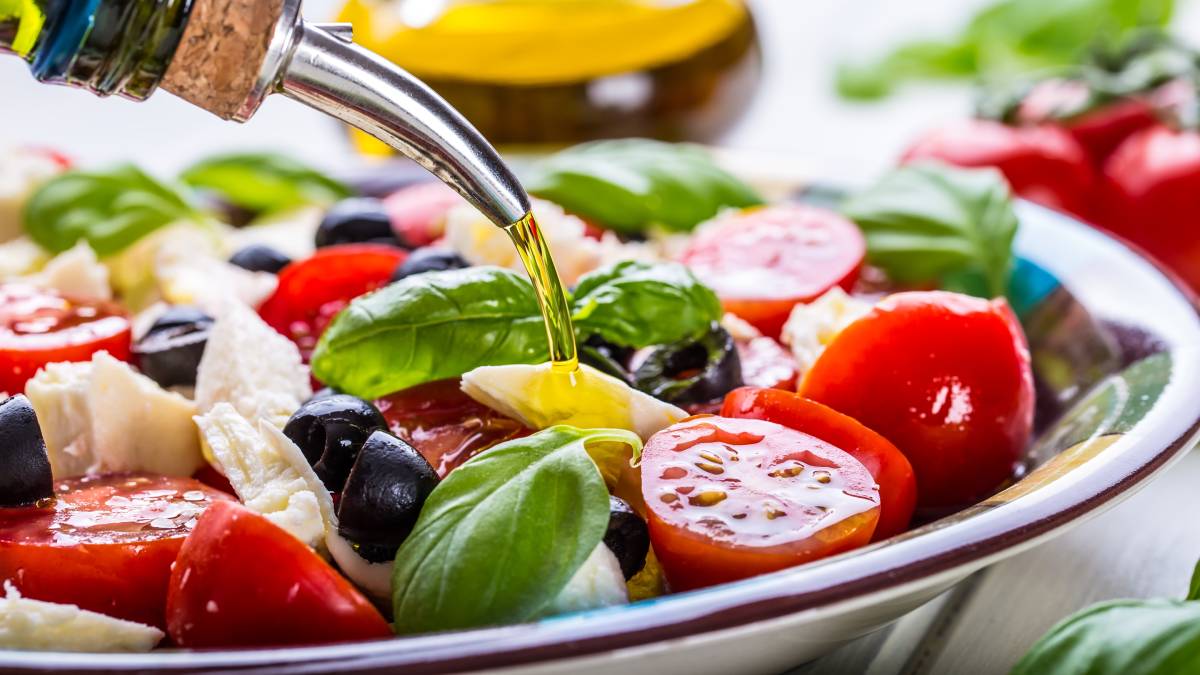A Mediterranean diet is touted as the best for overall health and longevity. But is it the best for anyone seeking to lose weight or reduce cholesterol?
Would a vegan diet be better?
In a myth-shattering study by the US non-profit Physicians Committee for Responsible Medicine, which promotes preventative medicine, doctors compared the two diets head to head.
They weighed and measured the cardiometabolic risk factors of 62 overweight participants, then randomly assigned half to a Mediterranean diet and half to a low-fat vegan diet.
Group members followed their assigned diets, without any restrictions on calorie intake, for 16 weeks, before vital stats were measured once more.
For four weeks, they all returned to their normal diets before being tested again and swapping to the other diet for another 16 weeks, after which their final stats were recorded. No other lifestyle factors were altered.
Low on red meat
The Mediterranean diet avoided red meat and saturated fats, and was heavy on fruit, vegetables, legumes, fish, low-fat dairy and extra virgin olive oil. The low-fat vegan diet comprised fruit, vegetables, whole grains and legumes.
At the end of each 16-week phase, doctors found that those on the Mediterranean diet had lost no weight, while those on the vegan diet had lost, on average, six kilos. They had also recorded better body composition, insulin sensitivity and cholesterol levels compared with those on the Mediterranean diet.
The only advantage to the Mediterranean diet was a bigger drop in blood pressure.
Surprise findings
The study found that within 16 weeks on each diet:
- Participants lost an average of 6kg on the vegan diet, compared with no mean change on the Mediterranean diet.
- Participants lost 3.4kg more fat mass on the vegan diet.
- Participants saw a greater reduction in visceral fat by 315 cm3 on the vegan diet.
- The vegan diet decreased total and LDL cholesterol levels by 18.7mg/dL [milligrams per decilitre] and 15.3mg/dL, respectively, while there were no significant cholesterol changes on the Mediterranean diet.
- Blood pressure decreased on both diets, but more on the Mediterranean diet (6.0mmHg, compared to 3.2mmHg on the vegan diet).
Study co-author Hana Kahleova said: “Previous studies have suggested that both Mediterranean and vegan diets improve body weight and cardiometabolic risk factors, but until now their relative efficacy had not been compared in a randomised trial.
“We decided to test the diets head to head and found that a vegan diet is more effective for both improving health markers and boosting weight loss.”
The authors noted that the vegan diet probably led to weight loss because it was associated with a reduction in calorie intake, an increase in fibre intake and a decrease in saturated and non-saturated fat consumption.
Crashed and burned
“While many people think of the Mediterranean diet as one of the best ways to lose weight, the diet actually crashed and burned when we put it to the test,” said study co-author Neal Barnard.
“The Mediterranean diet caused no weight loss at all. The problem seems to be the inclusion of fatty fish, dairy products and oils. In contrast, a low-fat vegan diet caused significant and consistent weight loss.”
So, if your goal this year is to lose weight and improve your health, a plant-based diet is the way to go, but hold the fries and focus on low-fat meals.
Would you be happy to eat a plant-based diet to improve your health? Share your thoughts in the comments section below.
Also read: Silky Vegan Chocolate Mousse


I guess the fact that vegans have to have vitamin B12 injections every month wouldn’t be an indication of how good it is for you?
That’s a furphy. Despite what meat-eaters believe, vitamin B12 does not come from animals at all. It is the only vitamin synthesized exclusively by microorganisms. It is found in soil, plants and others and can satisfy vegans’ daily requirements with 4g of dried purple laver or 50g of dried shiitake mushroom. In addition, they can also satisfy their daily requirements in a much less practical and palatable way by eating 143 gram of dirt per day, 3.44 kg of spinach, or like rabbits, their own faeces!!
I guess you’d better tell that to the Sea Shepherd. 4 months in Antarctica the whole crew is vegan and they all have B12 injections every month or they get very sick.
Teeto27, love how you always begin your comments with “I guess”, because that seems to be what you do. Staying in Antarctica is like staying on the moon. Not the best argument or comparison to present.